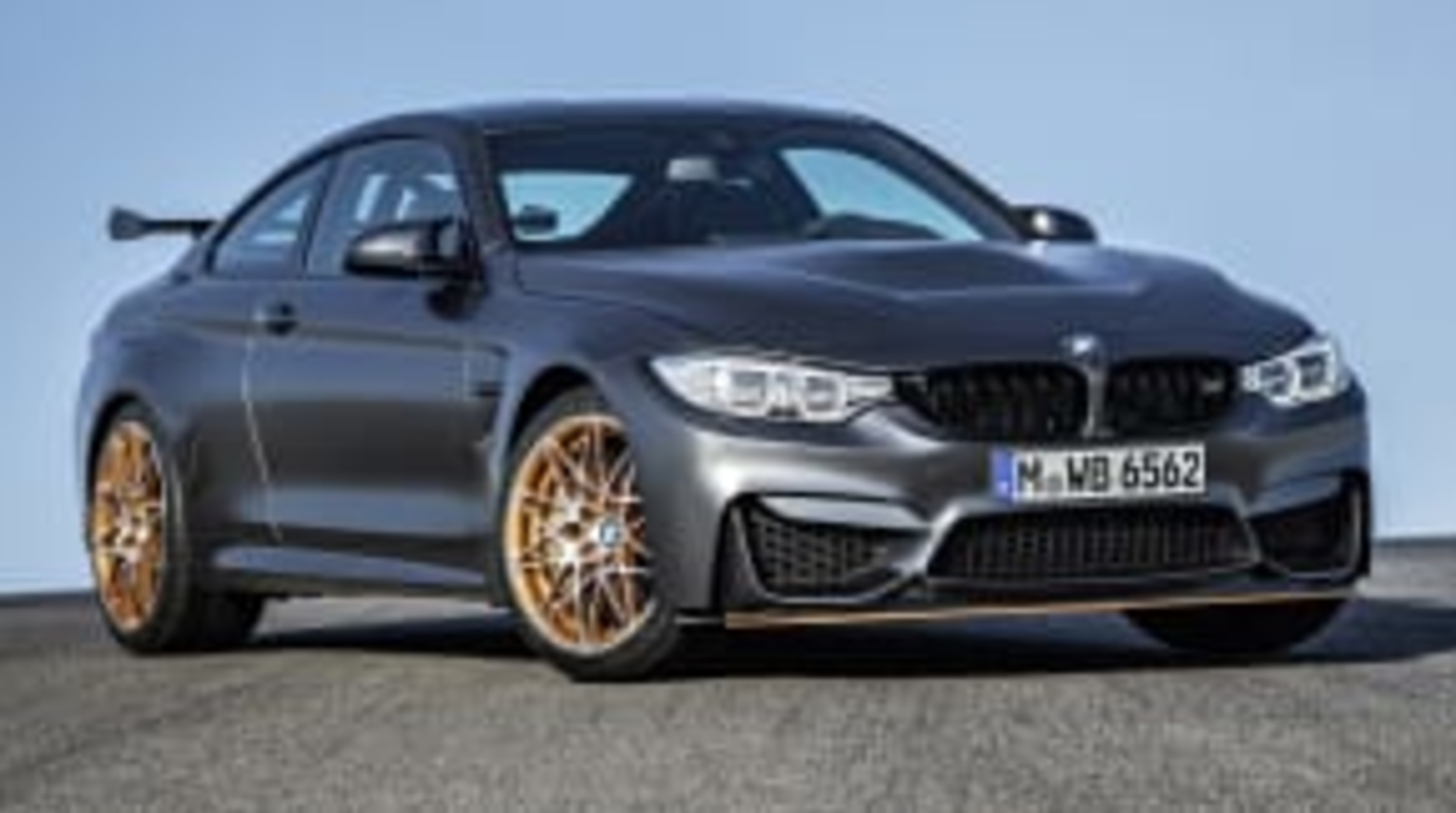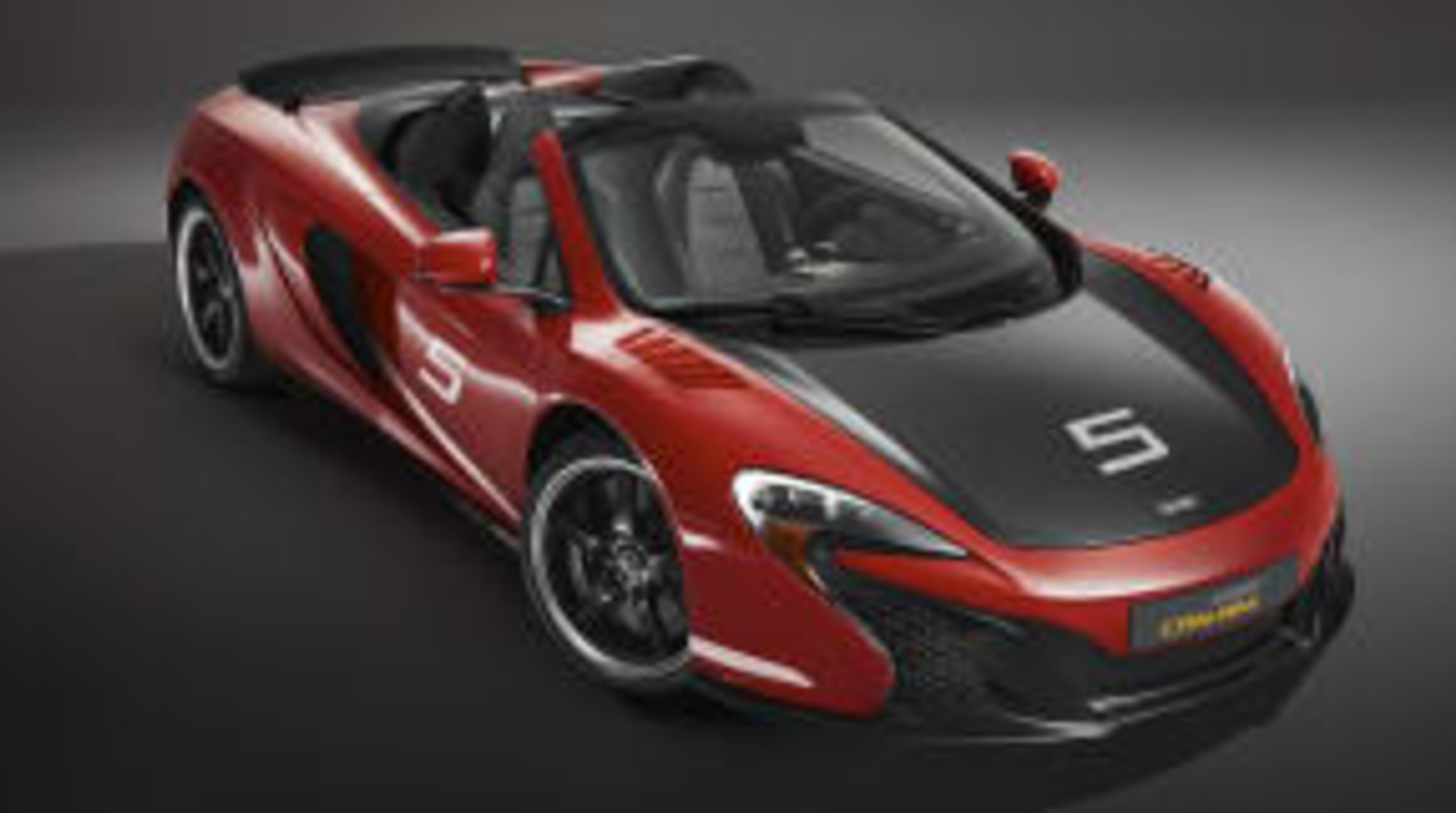Toyota confirmed plans this week to launch autonomous technology in its production cars around 2020. The automaker's version is called Highway Teammate, and it's one element of a broader mobility strategy that includes vehicles communicating with each other and the grid.
"Toyota believes that interactions between drivers and cars should mirror those between close friends who share a common purpose, sometimes watching over each other and sometimes helping each other out," the company said in a statement.
That sounds utopian, and perhaps a bit cheesy, but it's an acknowledgment that autonomous driving requires more than technology developed in a vacuum. Toyota is looking at its research in a broader context, and dubs its overall strategy the Mobility Teammate Concept.
Highway Teammate is the first step. Its test vehicle is a modified Lexus GS, which uses road-mapping data and external sensors to merge or exit highways, change lanes, and maintain safe distances during driving. It's operated on the Shuto Expressway in Tokyo. Toyota has been working on autonomous tech since the 1990s, with the goal of providing mobility for older people and the disabled, as well as lowering the frequency of traffic accidents.
Toyota's push comes as an early adopter, Nissan, is hedging on its own deadline to implement the autonomous tech by 2020 due to a lack of firm laws governing self-driving cars around the world. Conversely, Volvo took the landmark step of being the first automaker to accept liability for when its cars will operate in autonomous mode, and urged the US government to set federal guidelines to regulate the technology.
OTHER NEWS & NOTES
 2016 BMW M4 GTS: Your water-injected, turbo-boosted demon
2016 BMW M4 GTS: Your water-injected, turbo-boosted demon
BMW is unleashing its most powerful M4 ever, a 493-horsepower special edition that's road legal yet bred for the track. The company is making 700 copies for sale around the world, and 300 of them will come to the United States. The twin-turbocharged 3.0-liter six-cylinder revs to 7,600 rpm and uses a water-injection technology to cool the intake air and lower the compression temperature. BMW says this allows it to wring more power out of the inline six. The car also uses carbon-fiber reinforced plastic for the roof, hood, engine compartment strut brace, drive shaft, and rear spoiler to reduce weight. The M4 features BMW's organic light-emitting diode taillights, which are said to be an industry first. They use a flat design and light up over their full surface, which could lead to new styling opportunities for BMW. A spokesman confirmed to Autoblog this feature will come to the US market.
 Mitsubishi Lancer Evolution exits stage left
Mitsubishi Lancer Evolution exits stage left
Say goodbye to the Evo. Mitsubishi's long-running sports sedan is ending production, and it will go out with a special model called the Final Edition. It will cost $38,805 (including destination) and is limited to 1,600 models in the United States. This Evo runs a turbocharged 2.0-liter four-cylinder engine rated at 303 hp and 305 lb-ft channeled through Mitsubishi's Super All-Wheel Control all-wheel-drive system. It's paired with a five-speed manual transmission. The exterior design features a black aluminum roof, dark chrome alloy wheels, bi-xenon HID headlights, and special badging.
 McLaren relives Can-Am glory days with special edition
McLaren relives Can-Am glory days with special edition
McLaren is making an ultra-limited run of 650S spiders to celebrate the 50th anniversary of the Can-Am series that launched in 1966. McLaren dominated the series during its early years, winning five straight titles from 1967 to 1971. Created by McLaren Special Operations, the 650S Can-Am tries to capture the spirit of the time with a choice of red, orange, and onyx black paint schemes. MSO used carbon-fiber for the hood, retractable hardtop, tonneau cover, and airbrake. There is also a polished steel exhaust and wheels with a Can-Am design. The engine is the same mill used by the 650S, a twin-turbo 3.8-liter V8 making 641 hp. Just 50 examples will be sold globally, and they are due to arrive next spring. They will cost $334,500 in the US market. A spokesman couldn't say how many are coming here.
Related Video:
"Toyota believes that interactions between drivers and cars should mirror those between close friends who share a common purpose, sometimes watching over each other and sometimes helping each other out," the company said in a statement.
That sounds utopian, and perhaps a bit cheesy, but it's an acknowledgment that autonomous driving requires more than technology developed in a vacuum. Toyota is looking at its research in a broader context, and dubs its overall strategy the Mobility Teammate Concept.
Highway Teammate is the first step. Its test vehicle is a modified Lexus GS, which uses road-mapping data and external sensors to merge or exit highways, change lanes, and maintain safe distances during driving. It's operated on the Shuto Expressway in Tokyo. Toyota has been working on autonomous tech since the 1990s, with the goal of providing mobility for older people and the disabled, as well as lowering the frequency of traffic accidents.
Toyota's push comes as an early adopter, Nissan, is hedging on its own deadline to implement the autonomous tech by 2020 due to a lack of firm laws governing self-driving cars around the world. Conversely, Volvo took the landmark step of being the first automaker to accept liability for when its cars will operate in autonomous mode, and urged the US government to set federal guidelines to regulate the technology.
OTHER NEWS & NOTES
 2016 BMW M4 GTS: Your water-injected, turbo-boosted demon
2016 BMW M4 GTS: Your water-injected, turbo-boosted demon
BMW is unleashing its most powerful M4 ever, a 493-horsepower special edition that's road legal yet bred for the track. The company is making 700 copies for sale around the world, and 300 of them will come to the United States. The twin-turbocharged 3.0-liter six-cylinder revs to 7,600 rpm and uses a water-injection technology to cool the intake air and lower the compression temperature. BMW says this allows it to wring more power out of the inline six. The car also uses carbon-fiber reinforced plastic for the roof, hood, engine compartment strut brace, drive shaft, and rear spoiler to reduce weight. The M4 features BMW's organic light-emitting diode taillights, which are said to be an industry first. They use a flat design and light up over their full surface, which could lead to new styling opportunities for BMW. A spokesman confirmed to Autoblog this feature will come to the US market.
 Mitsubishi Lancer Evolution exits stage left
Mitsubishi Lancer Evolution exits stage left
Say goodbye to the Evo. Mitsubishi's long-running sports sedan is ending production, and it will go out with a special model called the Final Edition. It will cost $38,805 (including destination) and is limited to 1,600 models in the United States. This Evo runs a turbocharged 2.0-liter four-cylinder engine rated at 303 hp and 305 lb-ft channeled through Mitsubishi's Super All-Wheel Control all-wheel-drive system. It's paired with a five-speed manual transmission. The exterior design features a black aluminum roof, dark chrome alloy wheels, bi-xenon HID headlights, and special badging.
 McLaren relives Can-Am glory days with special edition
McLaren relives Can-Am glory days with special edition
McLaren is making an ultra-limited run of 650S spiders to celebrate the 50th anniversary of the Can-Am series that launched in 1966. McLaren dominated the series during its early years, winning five straight titles from 1967 to 1971. Created by McLaren Special Operations, the 650S Can-Am tries to capture the spirit of the time with a choice of red, orange, and onyx black paint schemes. MSO used carbon-fiber for the hood, retractable hardtop, tonneau cover, and airbrake. There is also a polished steel exhaust and wheels with a Can-Am design. The engine is the same mill used by the 650S, a twin-turbo 3.8-liter V8 making 641 hp. Just 50 examples will be sold globally, and they are due to arrive next spring. They will cost $334,500 in the US market. A spokesman couldn't say how many are coming here.
Related Video:










Sign in to post
Please sign in to leave a comment.
Continue